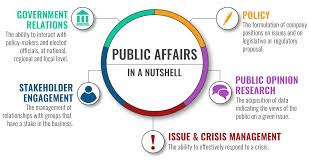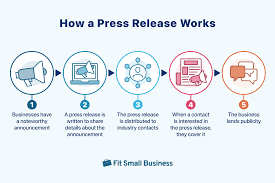Unlocking Success: The Essential Role of Communication Consultants in Business Growth
The Role of Communication Consultants in Business
Communication consultants play a vital role in helping businesses effectively convey their messages to internal and external stakeholders. These professionals are experts in developing communication strategies that align with the goals and values of the organisation.
One of the key responsibilities of communication consultants is to assess the current communication practices within a company and identify areas for improvement. They work closely with key stakeholders to understand the business objectives and develop tailored strategies to enhance communication effectiveness.
Communication consultants also provide guidance on how to communicate during times of change or crisis. They help businesses navigate challenging situations by developing clear and transparent messaging that maintains trust and credibility with stakeholders.
Furthermore, these consultants are skilled in media relations, helping businesses secure positive coverage and manage their reputation in the public eye. They work to build relationships with journalists and craft compelling stories that resonate with target audiences.
Overall, communication consultants serve as strategic partners to businesses, helping them build strong brands, engage with their audiences, and achieve their communication goals. Their expertise and guidance are invaluable assets in today’s competitive business environment.
Top 5 Advantages of Hiring Communication Consultants for Business Success
- Expertise in developing tailored communication strategies
- Ability to enhance internal and external communication practices
- Skilled in crisis communication management
- Experience in media relations and securing positive coverage
- Strategic partners in helping businesses achieve their communication goals
Challenges of Engaging Communication Consultants: Cost, Expertise, and Adaptability
- Communication consultants can be costly, especially for small businesses with limited budgets.
- There may be a lack of industry-specific knowledge or experience in certain niche sectors among communication consultants.
- Some communication consultants may struggle to adapt to rapidly changing communication technologies and trends, potentially impacting the effectiveness of their strategies.
Expertise in developing tailored communication strategies
Communication consultants bring a valuable pro to businesses with their expertise in developing tailored communication strategies. By understanding the unique needs and objectives of each client, these professionals can create bespoke plans that effectively convey the right message to the target audience. Their ability to craft strategies that align with the brand’s values and goals ensures that communication efforts are impactful and successful. This tailored approach allows businesses to stand out in a crowded market, build strong relationships with stakeholders, and achieve their desired outcomes efficiently.
Ability to enhance internal and external communication practices
Communication consultants possess the valuable skill of enhancing both internal and external communication practices within organisations. By evaluating existing communication strategies and identifying areas for improvement, these professionals can help businesses streamline their messaging processes, foster better collaboration among employees, and ensure a consistent brand voice across all channels. Externally, communication consultants can strengthen relationships with stakeholders, improve customer engagement, and enhance the overall reputation of the company through effective communication strategies tailored to resonate with target audiences. Their ability to bridge the gap between internal teams and external audiences makes them indispensable assets in driving successful communication outcomes for businesses.
Skilled in crisis communication management
Communication consultants bring a crucial skill to the table: expertise in crisis communication management. In times of uncertainty and turmoil, these professionals excel at crafting clear and effective messaging to address issues head-on, maintain trust with stakeholders, and protect the reputation of the business. Their strategic approach to handling crises can make all the difference in how a company navigates challenging situations and emerges stronger on the other side.
Experience in media relations and securing positive coverage
Communication consultants bring valuable expertise in media relations, enabling businesses to navigate the complex landscape of public perception with finesse. Their experience in securing positive coverage helps companies establish and maintain a favourable reputation in the eyes of the public. By building strong relationships with journalists and crafting compelling narratives, communication consultants can effectively amplify a company’s message and enhance its visibility in the media. This proficiency in media relations is a key advantage that allows businesses to strategically manage their image and engage with their target audience through trusted channels.
Strategic partners in helping businesses achieve their communication goals
Communication consultants serve as strategic partners in helping businesses achieve their communication goals by providing expertise, guidance, and tailored strategies. By working closely with key stakeholders, communication consultants gain a deep understanding of the business objectives and target audience, allowing them to develop effective communication plans that align with the company’s values and vision. Their insights and industry knowledge enable businesses to navigate complex communication challenges, build strong brands, engage with stakeholders effectively, and ultimately drive success in today’s competitive market landscape. Communication consultants play a crucial role in shaping how businesses communicate with their audiences and are instrumental in achieving impactful and measurable results.
Communication consultants can be costly, especially for small businesses with limited budgets.
Communication consultants can be costly, presenting a significant challenge for small businesses operating with limited budgets. The expenses associated with hiring professional consultants for communication services may not always be feasible for smaller organisations, leading to financial strain. This con highlights the importance for small businesses to carefully weigh the costs and benefits of engaging communication consultants, considering alternative strategies or resources that can help them achieve their communication goals within budget constraints.
There may be a lack of industry-specific knowledge or experience in certain niche sectors among communication consultants.
A notable drawback of communication consultants is the potential lack of industry-specific knowledge or experience in certain niche sectors. While communication consultants bring valuable expertise in strategic communication, messaging, and media relations, they may struggle to fully grasp the nuances and intricacies of highly specialised industries. This limitation could hinder their ability to provide tailored solutions that address the unique challenges and requirements of businesses operating in niche sectors. It is essential for communication consultants to continuously educate themselves on various industries to ensure they can deliver effective strategies that resonate with all types of businesses.
Some communication consultants may struggle to adapt to rapidly changing communication technologies and trends, potentially impacting the effectiveness of their strategies.
Some communication consultants may face challenges in keeping up with the fast-paced evolution of communication technologies and trends, which could hinder the effectiveness of their strategies. In an era where digital platforms and social media channels constantly evolve, consultants who fail to adapt may find themselves at a disadvantage when developing communication plans for their clients. It is crucial for communication consultants to stay abreast of the latest tools and trends in the industry to ensure that their strategies remain relevant and impactful in reaching target audiences effectively. Failure to do so could result in missed opportunities and decreased effectiveness in achieving desired communication outcomes.






